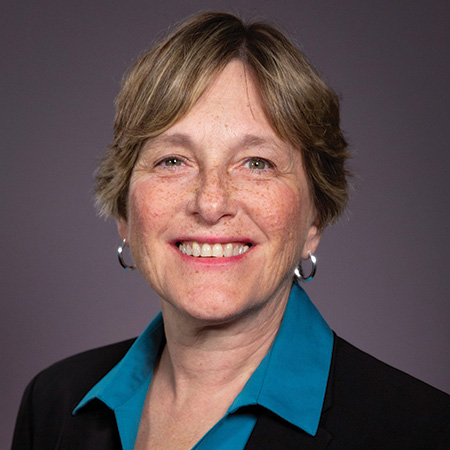The Importance of Communication
PRESIDENT’S MESSAGE
While working at NASA, one of my job functions was speaking with members of the public and the press. And inevitably, in those conversations, two questions came up more than any others: “What do the astronauts eat?” and “How do the astronauts go to the bathroom?” In fact, I’ve been asked the very same questions by quite a few of my fellow IFT members over the years ... even as recently as last month!
Now, admittedly, it is a pretty amusing pair of queries to get, especially so often. But it is also entirely understandable. People relate to food—it’s universal (quite literally, in this case), and it brings us together, whether around a dinner table or as a topic of conversation.
During the 17 years I worked at the NASA Johnson Space Center, the food lab saw visits from Alton Brown, Rachel Ray, and countless others. Needless to say, it was a unique and thrilling work environment—though sometimes we felt like the media requests got in the way of the real work! But looking back now, I realize those media requests were actually a very important part of our work not just as NASA scientists, but as food scientists in general. It is our responsibility to inform the public about the important work that we do, and to help them understand how critical that work is to the safety and sustainability of the world’s food supply.
In recent years, as the sheer volume of information (and misinformation) made available to the public has grown exponentially, IFT has been stepping up its efforts to communicate with the public and the press to share the facts around the science of food and clarify some of the more common misconceptions that surround our profession.
When it comes to food, everyone thinks they’re an expert because they eat, shop, and cook. But if you’re not a member of our profession, you might not fully appreciate the important role that science plays in creating and sustaining a safe and nutritious food supply. Effectively communicating the science of food is no simple task. So, as part of IFT’s mission to advance the science of food, we’ve expanded our Food Science Communi-cators program. The program empowers IFT member volunteers to share their expertise to help inform the media and public about the science of food. As of this month, 34 of your fellow IFT members are Food Science Communicators.
We also commissioned the feature-length documentary, Food Evolution, to explore food-related challenges we face globally, the importance of data-driven science and critical thinking, and the public perceptions and misperceptions involving the science of food. To date, Food Evolution has been shown in 45 countries around the world, including 120-plus theaters and at 150-plus colleges/universities, as well as the National Academies of Science and European Parliament. It’s also available on Hulu, YouTube, iTunes, and Google Play.
Additionally, IFT wanted to make it easier for all of our members to advocate for the work of our profession, so we created some shareable advocacy toolkits on topics such as date labeling, blockchain and emerging technology, and nutrition labeling, with more topics to come in the months ahead. The toolkits are designed to help promote greater knowledge and understanding about these topics and their impact on consumers and are easy to share on social media.
We want all of our members to feel like they have a voice in the important ongoing conversation around food. By providing Food Evolution, the Food Science Communicators program, and the advocacy toolkits, IFT is helping our members communicate the real, data-driven science of food in the face of a public dialogue that is increasingly anecdotal or flat-out inaccurate.
Of course, we can only be at our most effective as a professional association when all of our members come together in these efforts. So, I encourage you to do your part: tell your friends or family or peers about what you do. Talk to them about the science behind pressing issues in our profession, like food safety, or GMOs, or whatever subjects they are emotionally tied to—trust me, there is no shortage of emotion when it comes to food! Maybe send them a link to one of our advocacy toolkits. Or, if you are a subject matter expert who wants to share that expertise with the press, you can always help IFT and the science of food profession as a whole by joining the Food Science Communicators program. Whatever method you choose to communicate, we need your voice and your knowledge and your expertise.
 Michele Perchonok, PhD, CFS
Michele Perchonok, PhD, CFS
IFT President, 2018–2019
[email protected]


